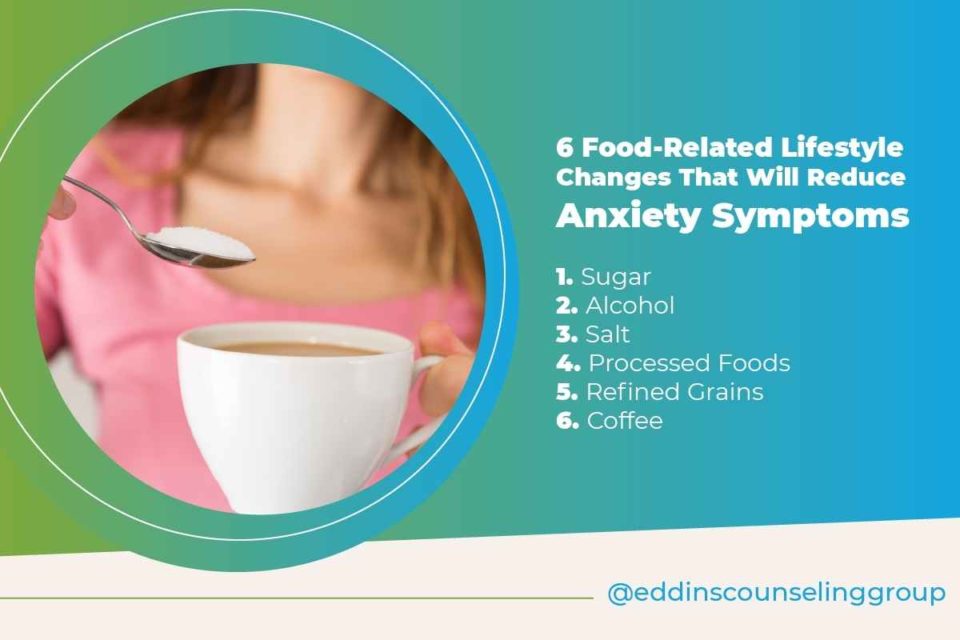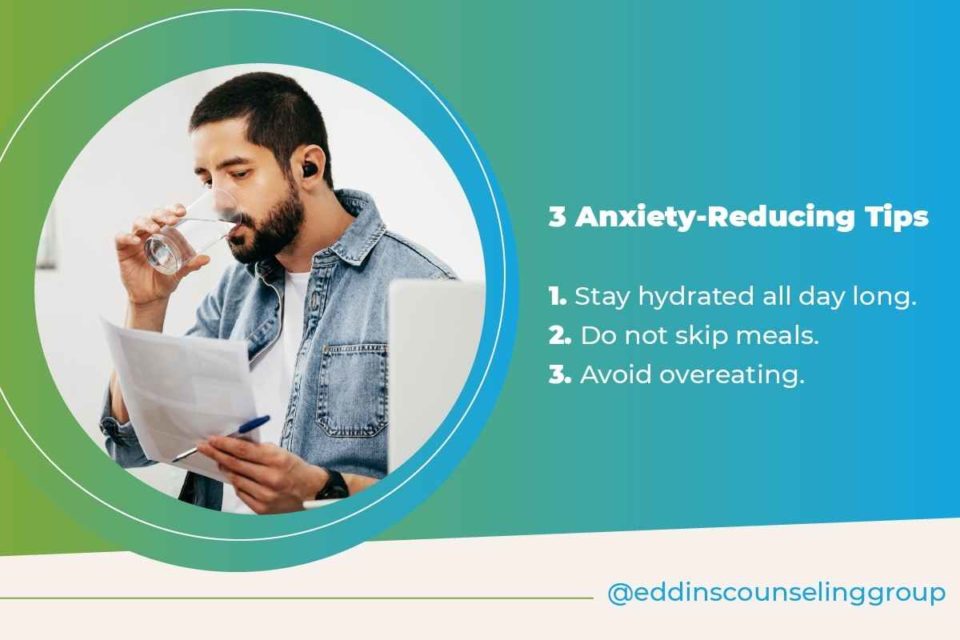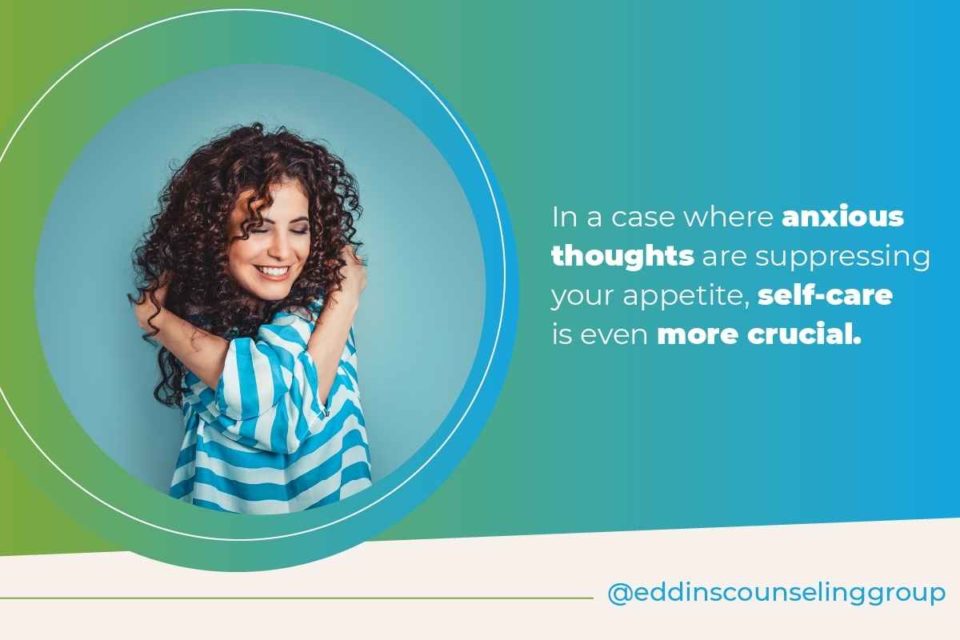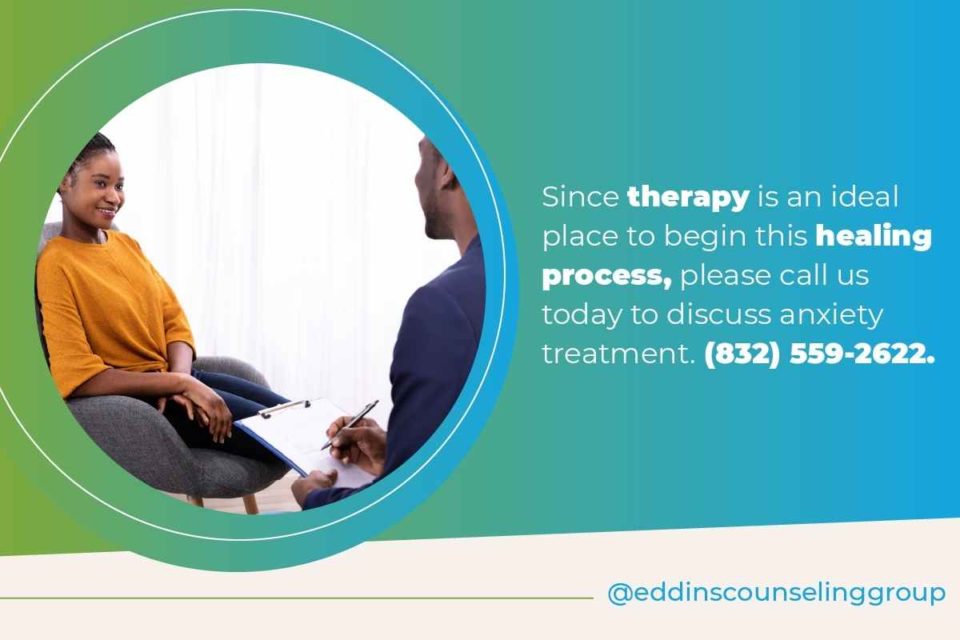July 25, 2022
Food-Related Lifestyle Changes That Will Reduce Anxiety Symptoms
Written by Sara Lane
Posted in Anxiety and with tags: Food, emotional health, mental health, understand anxiety
 Anxiety is the most common mental health issue on the entire planet. Roughly one in 13 humans struggle with this persistent problem on a daily basis. If you are one of them, you can take solace in the reality that you are far from alone.
Anxiety is the most common mental health issue on the entire planet. Roughly one in 13 humans struggle with this persistent problem on a daily basis. If you are one of them, you can take solace in the reality that you are far from alone.
There is no shame in having an anxiety disorder. Fortunately, there are countless steps you can take to address it. This includes addressing your dietary choices.
Anxiety and food, nutritional supplements, and lifestyle habits are connected.
Yes, what you eat and drink can contribute mightily to your mood, particularly anxiety. This is not to say that changing your eating habits will “cure” anxiety.
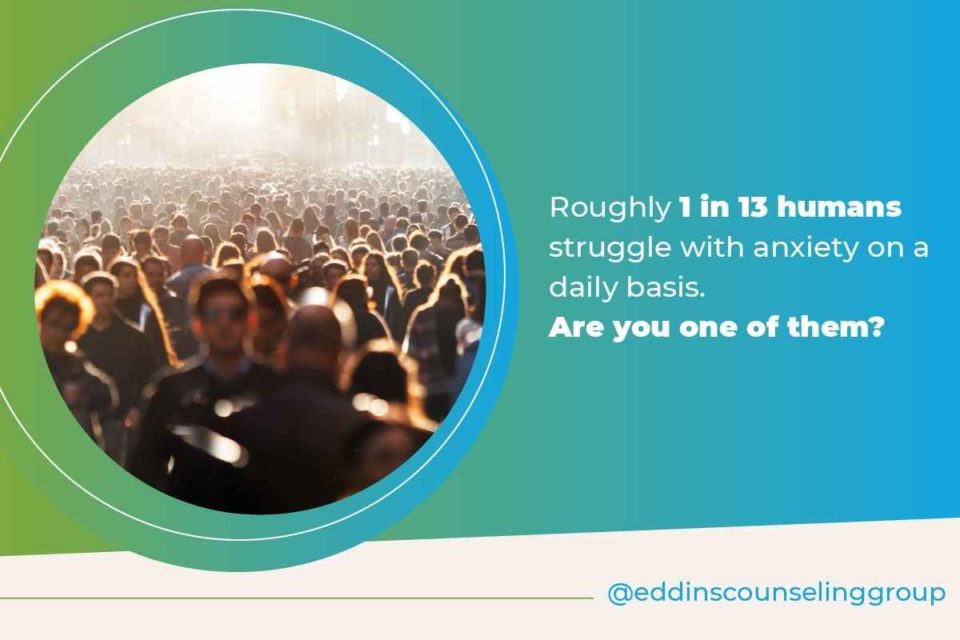
However, key changes can absolutely help reduce symptoms.
6 Food-Related Lifestyle Changes That Will Reduce Anxiety Symptoms
1. Sugar
Somehow, this dangerous ingredient remains an under-discussed problem. According to the U.S. Department of Agriculture, no more than 10 percent of an adult’s daily calories should come from sugar. Meanwhile, the average American consumes about three pounds of sugar per week!
In terms of anxiety, this much sugar activates a stress hormone called cortisol and thus, makes mood problems worse.
2. Alcohol
Serotonin is an important chemical produced by the body. It helps to prevent anxious thoughts by regulating your mood. Alcohol, however, inhibits serotonin production.
3. Salt
Here’s the basic equation:
- Too much salt increases your blood pressure.
- Increased blood pressure causes your heart to overwork.
- The body must release adrenaline to assist the heart.
- Over time, elevated adrenaline leads to more tension and anxiety.
4. Processed Foods
Perhaps you’ve noticed that your supermarket probably has a “natural foods” aisle. What does that say about everything else they sell?
Highly processed foods — especially when fried — have been found to increase the likelihood of both anxiety and depression.
It is wise to steer clear or limit your intake.
5. Refined Grains
Think about alleged food “staples” like white flour, white bread, and white rice. These products are actually stripped of nutrients and fiber so they can last longer on the shelves.
A diet laden with refined grains wreaks havoc on your blood sugar levels. This means more mood swings and a propensity toward anxiety.
6. Coffee
As with alcohol, coffee suppresses serotonin production. And certainly, you do not need to be reminded about those caffeine-related jitters.
Are there foods that reduce anxiety and depression?
It’s Not Just About Don’ts
If a low-anxiety diet were just about removing food items, it would be daunting and depressing. Fortunately, there are some positive nutritional suggestions to share, e.g.
Discover New Whole Food Choices
Your mind and body will thrive when fed well-balanced meals. This means choosing whole foods instead of packaged, processed foods. Generally, consider the following additions:
- Fruits (organic and GMO-free, whenever possible)
- Vegetables (organic and GMO-free, whenever possible)
- Complex carbohydrates (try experimenting with whole grains like millet and amaranth)
- Seafood high in omega-3 fatty acids (for example, salmon)
- Healthy protein choices — especially during breakfast to level off blood sugars and get you started on a high-energy day
The key to keeping your blood sugar in balance and managing your mood is to remember to balance carb intake with a protein. This helps your blood sugar to release slowly and prevents mood swings, energy spikes and crashes and cravings.
Other Anxiety-Reducing Options
- Stay hydrated all day long. Choose filtered water as often as you can.
- Do not skip meals. Doing so will also cause sudden drops in blood sugar and sudden spikes in crankiness and anxiety.
- Avoid overeating. Portion control helps your body function optimally and reduces crashes in mood.
If you are feeling out of control with food, therapy for emotional eating can help.
Talk to a Professional
Once again, none of the above information is being presented as a “solution” to your ongoing anxiety issues. Smart meal planning is simply a major benefit for your life and ongoing health.
Even so, you will still need to talk to someone who can assist you with your mental health in addition to nutritional advice. This is why we invite you to reach out today. Our blend of experience can help guide you through the maze of anxiety treatments — including dietary changes.
Please read more about anxiety treatment and holistic health. Let’s get started with a confidential consultation and a path toward healing and wholeness.
How / But what if you fear that anxiety is causing some counterproductive dietary changes?
The common sensation of anxiety can play a large role in what we eat and, more commonly, how much we eat.
With that in mind, let’s explore the reasons behind this reality and what you can do to counteract such a trend.
How Anxiety Affects Your Appetite
When anxiety strikes, there are some occasions when you may try to eat it away. Far more likely, the physical sensations can cause you to neglect to eat.
You may feel nauseous. Your stomach seems to be tied in that proverbial knot. If the anxiety lingers, you could literally lose touch with any sense of being hungry. Hours later, you may suddenly realize you haven’t eaten all day.
Another factor in this cycle is your hard-wired fight-or-flight response.
Your mind and body are designed to respond to danger in a very protective manner. Part of this response involves the release of a stress hormone called cortisol.
This chemical helps you do what you need to do to survive. Hunger, in the midst of a threat, is not a priority.
The above reactions are automatic and can be life-saving when the danger is real. If your fight-or-flight response is regularly triggered by chronic anxiety, it can negatively impact your digestive system and cause a range of other health issues.
This makes it so important for you to identify your anxiety triggers. Keep track of what causes you anxiety if, for no other reason, so an anxiety disorder doesn’t being to jeopardize your physical health.
How to Heal Your Appetite as You Heal From Anxiety
You will hear the term “self-care” a lot during this series of posts. It is an essential component of managing the symptoms of anxiety. In a case where anxious thoughts are suppressing your appetite, self-care is even more crucial.
Here are several questions to consider and steps to take on your own:
- Are you currently eating too little? Fortify your health by getting in some daily physical activity and/or exercise. This should also make you more hungry as you need to refuel.
- Is your sleep inadequate? Get yourself on a steady sleep schedule. This means going to bed at roughly the same time each night. It means getting up at roughly the same time each morning. Healthy sleep habits are also very helpful for anyone struggling with an anxiety disorder.
- How often do you feel thirsty and run down? Stay hydrated. As stated previously, your body and mind need enough water, particularly filtered water.
- Is your diet sufficient? Create a meal schedule. If your mind and body are not giving you hunger cues, you can set them in motion. This requires you to eat and snack on a strict schedule until your appetite re-emerges.
As part of your meal schedule, do some experimenting.
- Discover which foods agree with you even when you’re stressed.
- You may need to graze. Try eating multiple mini-meals throughout the day.
- If nausea is an ongoing issue, try choosing bland foods for the time being.
- Whatever you choose, always aim for maximum nutrient absorption.
Getting Help on Multiple Tracks
Choosing to heal your anxiety is a multi-faceted effort. You’ll need support from someone who understands all the angles. If your anxiety disorder has disrupted your eating habits please read more about anxiety treatment and reach out for support.
What you choose to eat or drink can play a major role in your mental well-being (or lack thereof). Certain food and drink choices impact us on multiple levels. These impacts have the potential to create new anxiety or escalate current anxiety.
I’ve told you about factors like skipping meals, allowing yourself to get dehydrated, and overdoing the caffeine. Cigarettes, drugs, and alcohol are all contributors to anxiety (and countless other health woes). Some issues require a much closer look to fully understand.
5 More Food-Related Factors That Can Cause or Exacerbate Anxiety Symptoms
1. Non-Prescription Drugs Can Promote Anxiety
It is well-known that pharmaceutical products have side effects. That’s why it is so important to educate yourself — especially if you’re struggling with anxiety. In addition, common over-the-counter drugs can contain ingredients that promote anxiety.
Some examples of ingredients that can increase anxiety:
- Some pain relievers contain caffeine
- It is not unusual for cough medicines and weight-loss supplements to also include stimulants
- Even herbal supplements like ginseng have been found to be anxiety-inducing
Once again, diligently do your homework before ingesting anything.
2. Nutrient Imbalances Can Lead to Anxiety
Speaking of supplements, deficiencies in or overuse of vitamins and minerals are known to affect your mood. Here are just three of the many nutrients that can lead to anxiety if they are not ingested in their suggested amounts:
- Selenium
- Magnesium
- Omega-3 polyunsaturated fatty acids
You can keep a healthy balance through supplementation, of course. Even better, do your best to increase nutrients through the consumption of a healthy, whole foods-based diet.
3. Food Additives Can Increase Anxiety Symptoms
As we just touched on, even vitamins and minerals require scrutiny. When it comes to man-made ingredients, you really have to keep your guard up. Food additives are suspected to play a negative role in terms of issues like mood swings, anxiety, and more.
For example:
- Artificial sweeteners like aspartame
- Food coloring and dyes
- High fructose corn syrup
Such manufactured chemicals have the potential to disrupt your nervous system’s function. The more recent introduction of unlabeled genetically modified organisms (GMOs) into the human diet gives us reason to pause. Reminder: Do your research.
When and if studies are produced by the same companies that produce the ingredients in question, be wary.
4. Food Allergies and Sensitivities Can Contribute to Anxiety
The reactions can range from minor to severe. Thus, it is highly recommended that you become very familiar with any foods and/or ingredients that may directly impact you. Common culprits are dairy products, chocolate, gluten, corn, and soy. Once again, GMOs are a common factor.
Your body requires a very specific balance to run in the most optimal way. If you do not consider the possible effects of food allergies and sensitivities, you are putting that balance at risk.
5. Sensory Factors Can Trigger Anxious Feelings or Memories
This is a far more abstract concept but one to ponder nonetheless. How a food tastes, smells, or feels can trigger negative emotions or memories. These are called “unconscious cues.”
You may be reading labels and committing to conscious eating. But it’s a lot trickier to identify food-based sensory triggers. Hence, this may be a topic to initially explore with your therapist.
Speaking of Your Therapist…
Throughout this series of posts, we’ve highlighted awareness. Anyone struggling with anxiety benefits by being conscious of its myriad triggers and causes. More fundamentally, however, consider connecting with a mental health professional.
Your recovery will require a variety of approaches to fully address and manage an anxiety disorder. Since therapy is an ideal place to begin this healing process, please read more about anxiety treatment. We’d love to talk more about this with you soon.
If you’re ready to get started, call today to schedule an appointment with our of our Houston, Montrose, or Sugar Land therapists.
5 Ways to Reduce Anxiety
Get instant access to your free ebook.
Grounding & Self Soothing
Get instant access to your free ebook.
Create Healthier Thoughts & Feelings
Get instant access to your free ebook.
Why You Feel This Way
Get instant access to your free ebook.

